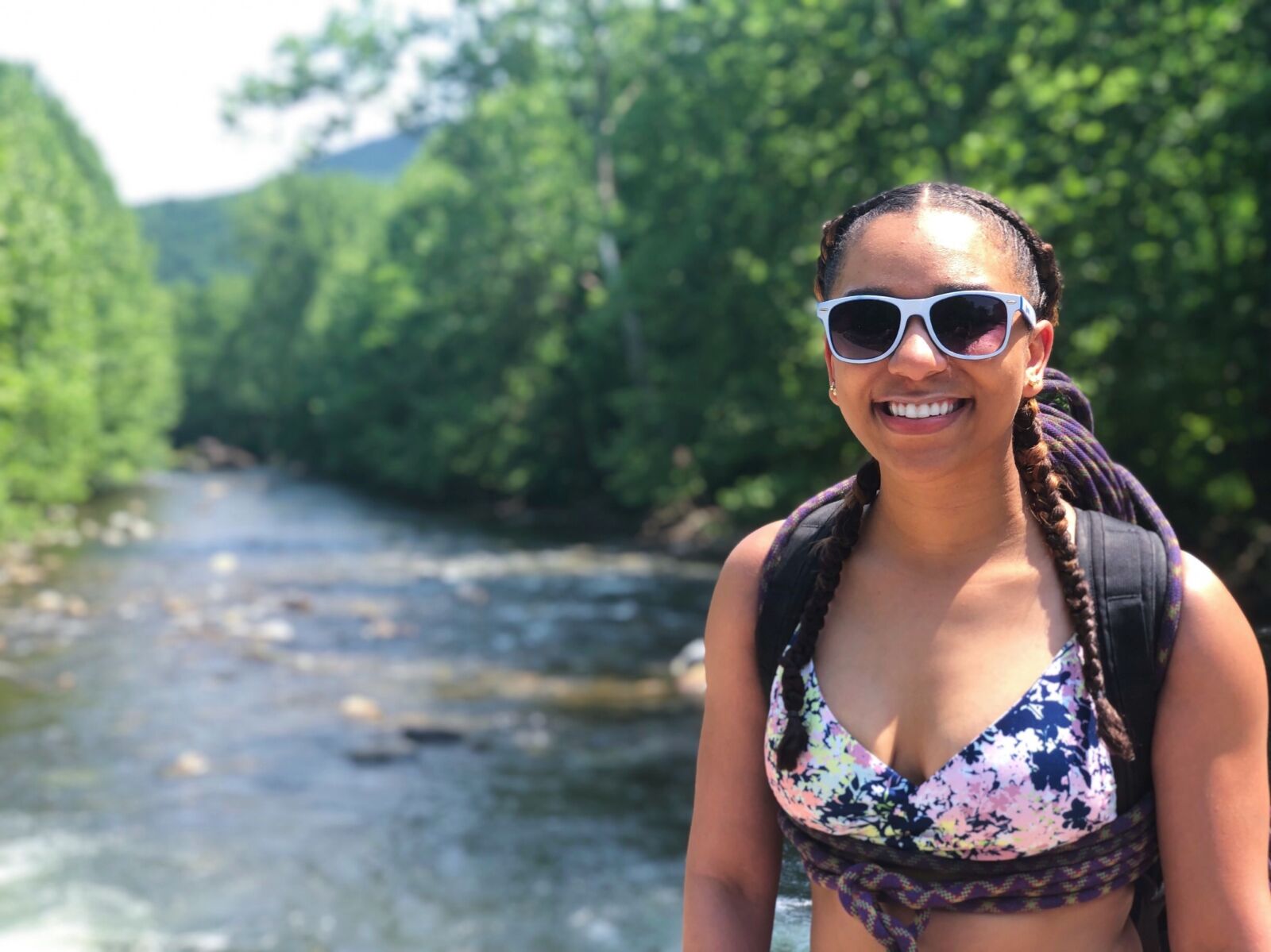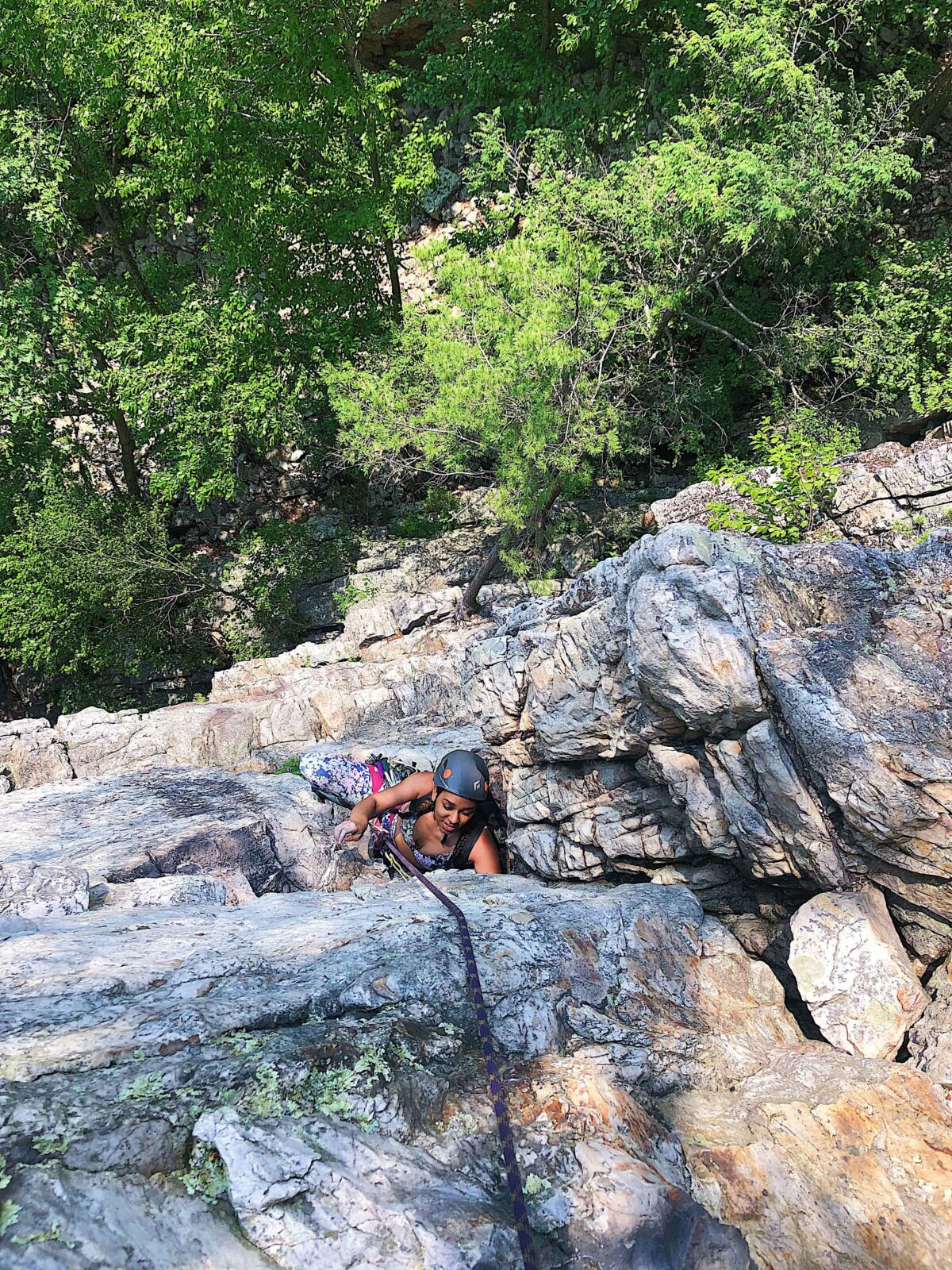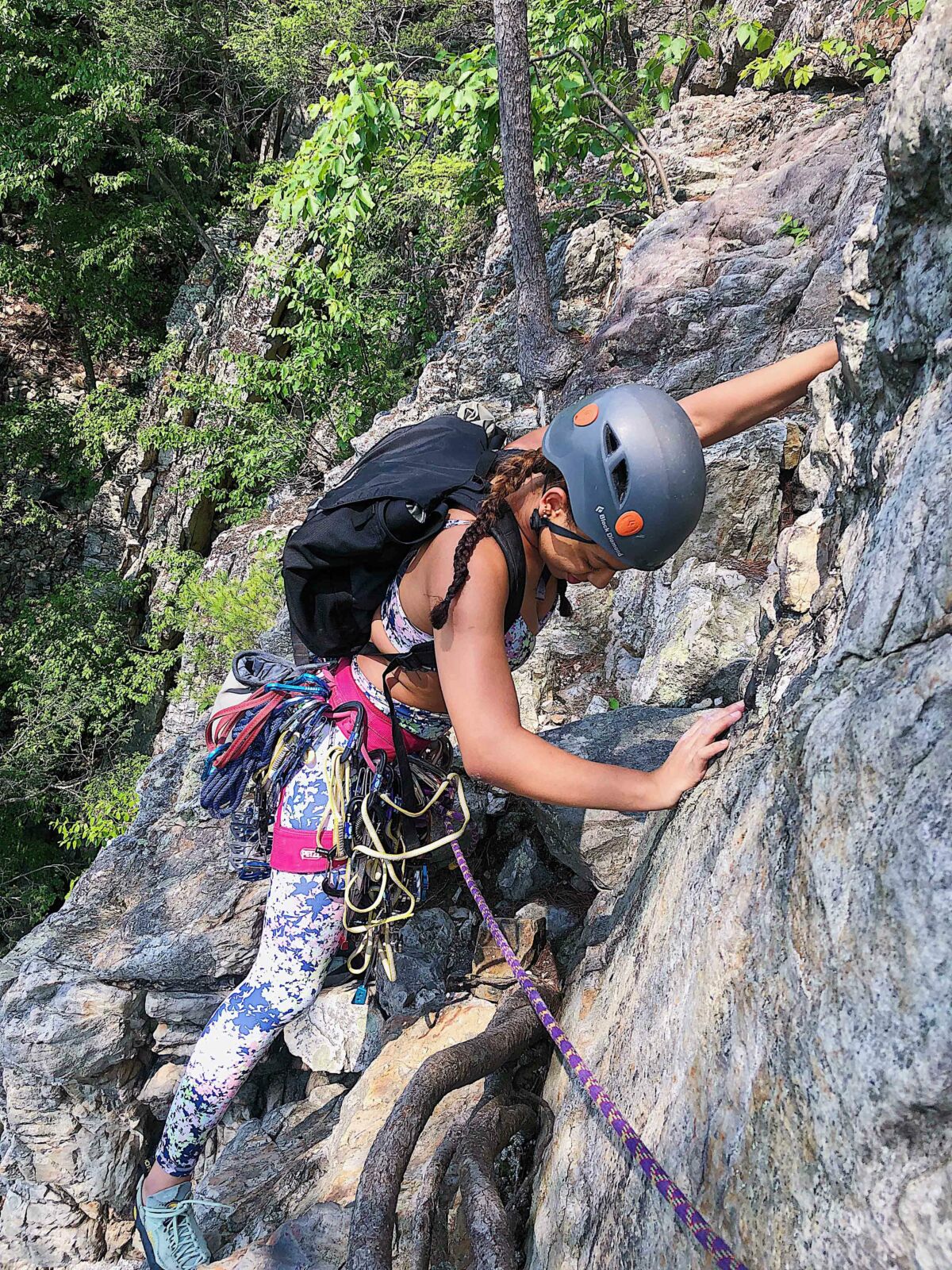“Are you still climbing those rocks? I’m happy you’re doing what you love but be careful sweetie, not everywhere is safe for us.” Words of support but caution from my grandfather whose entire focus in life was to keep his family safe and sound. Words from a man who was born into a society that decided he was inferior; all because he was born black. Words from a man who had to learn survival all too young, as after the passing of his mother he had to drop out of grade school to work.
Where instead of discovering the love for reading, how to do long division, or enjoying recess with classmates, he had to work on a white man’s farm growing tobacco and picking cotton in North Carolina. Throughout his time there he experienced an immense amount of mistreatment; resulting in him running away at age 16 to Philadelphia to live with his aunt and uncle, thus allowing him to escape the racism he endured there and providing the opportunity to seek a better life.
Often when diversity in the outdoors is discussed, as well as barriers to access, the most frequent question or comment that I see is: “What barriers? When I wanted to go outdoors, I just went, no one is stopping you.” However, our connection to the outdoors is in a sense, generational. So our connections, and the access to those connections are different.
“Grandma is so proud of you baby. When I was a young girl I wish I could’ve been able to do what you do. We couldn’t go out in the woods like that in the South; Grandma is living vicariously through you.” Words of love and longing from my grandmother. A bittersweet exchange of her telling me how proud she is that I am doing what I love.
Words from a woman whose childhood was spent in Virginia dreaming of experiencing these adventures. Words that lingered with yearning; because as a woman, a black woman, the very thing she felt so passionate about was seemingly inaccessible and unsafe.
“It is not the best decision to travel into the backcountry, you need to be careful of where you travel because historically some of them weren’t, and still may not, be safe for you as a black woman. You don’t have to go on every trip Gabrielle.” Words of concern and wariness from my father. Words from a very supportive but worried dad when he found out his daughter was headed to a climbing area that he had never heard of in Kentucky and Tennessee.

Photo by Maribel Wong
Gabrielle Dickerson in Monongahela National Forest.
Often when diversity in the outdoors is discussed, as well as barriers to access, the most frequent question or comment that I see is: “What barriers? When I wanted to go outdoors, I just went, no one is stopping you.” However, our connection to the outdoors is in a sense, generational. So our connections, and the access to those connections are different.
Historically, the very outdoor spaces that some may have spent their entire childhood , were the same spaces that people like my grandfather worked hard to escape from. A white person’s outdoor memories may have started with hiking, climbing, or backpacking deep in the woods; a positive connection that they pass down for generations. However that connection can be incredibly different for BIPOC* as mobs, lynchings, and beatings took place in that very same space. Historically, it was ingrained in society that because of skin color, we didn’t belong. Access to the outdoors was not equal.

Photo by Maribel Wong
Gabrielle Dickerson in Monongahela National Forest.
My experience in climbing outdoors has been almost exclusively in National Forests. It is there in which I’ve learned about my true self, where I pushed myself physically and mentally beyond my limits, where I unearthed my strength, and where I discovered my resilience.
When I am here, in these spaces, I think about how it's all ours, and how it’s always been all ours.
This is for my grandfather. Who never got to experience these outdoor spaces in the way I finally am able to. Who for a very long time did not get to encounter the peace our lands had to offer, as society did not want to accept him as a black man. Because starting at a young age, survival was all that he knew; and he worked hard to create a better and safer life for his family. For me.

Photo by Maribel Wong
Gabrielle Dickerson in Monongahela National Forest.
This is for my grandmother. Whose very soul craved adventure. Who craved to be in these outdoor spaces just seeing, just playing, and just experiencing. But as a black woman, it was unsafe for her to go discover. Because inequality barred another hopeful heart from being able to encounter all that she could on our lands.
This is for everyone who came before me. Who fought tirelessly to open the gate that I now bravely walk through. Shining their light on the path that allows me to climb, and to experience my national forests. The path that has shaped me to be who I am today. Where I fall deeper and deeper in love with the pure serenity I’ve been so blessed to have placed before me and have become more than acquainted with, when I am in these spaces. The path that also pushes me to follow in their footsteps, to amplify their light to touch our entire community, and to force the gate to the outdoors to be kept open for those with me and for all those who will come after me.
This is for you.
Our National Forests means freedom. They mean access. They mean equality. With this, we must constantly work together to ensure that it continuously means these words and these positive experiences…for everyone
*Black, indigenous, people of color
About the Author
Gabrielle Dickerson is a full-time graduate student, cyber security engineer, and avid rock climber based out of Southern Maryland. She is currently pursuing her Master’s in Cybersecurity, and additionally is a rock climbing instructor for Earth Treks Hampden in Baltimore, MD. In discovering her passion for rock climbing and the outdoors, Gabrielle could not help but notice that her experiences as almost always the only black woman within these spaces were very different than her friends and climbing partners. These experiences pushed her to connect with affinity spaces present in the climbing community and become an advocacy leader within them; while also using her platform on Instagram (@gabbyplainandsmall) to educate, share stories, and uplift the voices of under-represented communities.

